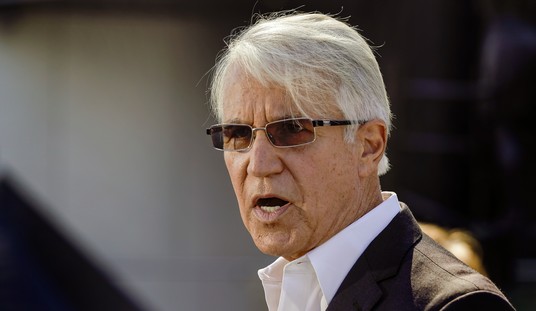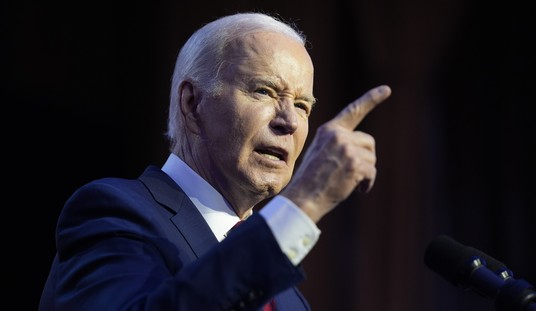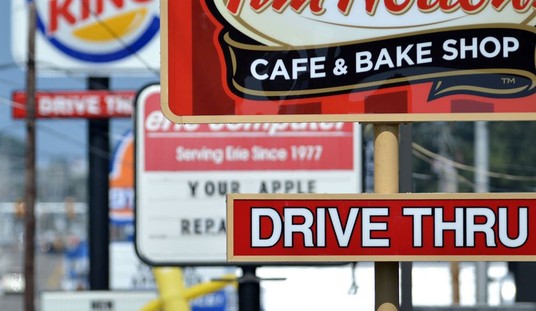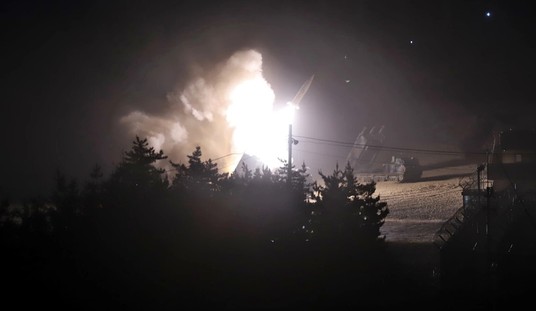 Almost exactly 100 years ago (which is to say, longer ago than anything Ezra Klein cares about), British general Sir John French, Commander in Chief of the British Expeditionary Force (BEF) in World War I, was responsible for one of the most significant military failures of leadership in modern history. His failure is, with remarkable parallels, playing out again on the American political stage at the hands of [mc_name name=’Sen. Mitch McConnell (R-KY)’ chamber=’senate’ mcid=’M000355′ ].
Almost exactly 100 years ago (which is to say, longer ago than anything Ezra Klein cares about), British general Sir John French, Commander in Chief of the British Expeditionary Force (BEF) in World War I, was responsible for one of the most significant military failures of leadership in modern history. His failure is, with remarkable parallels, playing out again on the American political stage at the hands of [mc_name name=’Sen. Mitch McConnell (R-KY)’ chamber=’senate’ mcid=’M000355′ ].
Modern historians tend to take the view that World War I could not have played out any other way than the messy and brutal war of attrition that it eventually became. Probably, this is correct. Once the trench lines were drawn, particularly on the Western front, neither the central powers nor the entente would have agreed to a peace acceptable to the other, and the nature of industrial warfare made an actual breakthrough highly unlikely. Accordingly, the only realistic scenario which would bring about the end of the war would involve one side outlasting the other – “outlasting” in this context meaning “having more young men and materiel to sacrifice to the cause.” And so millions of young men went to die in abbatoirs like Verdun and the Somme until the Central Powers were finally broken in 1918.
Yet an argument can be made that each side had at least one chance to decisively end the war in the very early days of its inception in 1914. After the Germans initiated hostilities on the Western front by violating Belgium’s neutrality, Britain declared war on Germany; however, until Lord Kitchener was able to raise a continental army (an undertaking that would not be completed until 1916), the British were only able to send a small expeditionary force to the entente’s aid under the command of Sir John French. The French army, under Joseph Joffre, responded to the initiation of hostilities on their border with a disastrous offensive campaign intended to reclaim Alsace-Lorraine, whereupon they were routed by the advancing Germans and driven into headlong retreat. The advancing German hammer fell up on the BEF at Mons, causing them to fall back to Le Cateau, where they were again forced to retreat further into French territory. The advancing First and Second German armies, under the command of Alexander von Kluck and Karl von Bulow (respectively) had a real chance, given adequate coordination, to take Paris and drive the Entente to its knees. However, German high command was unable to maintain coordination between Kluck and Bulow, who had become overconfident and lax, believing the French to be utterly defeated already. As a consequence their armies were disastrously separated while on the verge of victory, providing perhaps the one opportunity on the Western front for the entente to flank the Germans and deliver a decisive counter blow.
The French, however, were not as beaten as the Germans would have believed. Joffre had secretly assembled a full corps in reserve behind the Marne and when he received intelligence about the separation between Kluck and Bulow, he presciently understood that the one opportunity for a quick entente victory lay before him. His problem was the British, specifically Sir John French. Sir John French had become disillusioned with the fighting skill of his allies and their generals and flatly refused to join any counteroffensive. (French’s complaint in this case was completely unjustified – while the French army’s conduct in World War II has been justly maligned, in World War I they fought with astonishing bravery and skill, especially as compared to the British.) In an unhappy coincidence, the place occupied by the BEF in the allied line happened to be a vital point in the planned effort to drive a decisive wedge between Kluck and Bulow. Joffre pleaded with French President Raymond Poincaré who in turn pleaded with Kitchener and British PM H.H. Asquith to prevail up on French for the BEF to take their place in the line. Asquith and Kitchener flatly and personally ordered Sir John French to take his place in the line and to participate in any French counteroffensive, but when Joffre called upon French to verify that the BEF was ready to proceed, he declared that the BEF was demoralized and could not possibly attack for at least ten days. Enraged, Joffre himself came to BEF headquarters and personally pleaded with French about the importance of the coming counteroffensive. French professed to be moved by Joffre’s plea and declared, “Tell him that all that men can do our fellows will do.”
When the time came for the vital counteroffensive on the Marne, the BEF was indeed technically there, physically. But objective observers, including Sir John French’s subordinates, would later state in unequivocal terms that French deliberately slow played the BEF’s part in the offensive and did just enough to avoid the charge that the BEF failed to participate.
When the French counteroffensive struck the German columns on the Marne, the stunned Germans were forced into retreat, such that as a consequence the advancing BEF met little or no actual German resistance. As an indication of the level of surprise and disorganization Joffre’s attack wreaked on the German front, the Germans by all account were unable to manage even token rearguard actions on their retreat. And yet, according to Sir John French’s own records, during the course of the Marne campaign, the BEF made alarmingly slow progress – marching only 6 miles in one day and 9 in another (by way of contrast, Kluck and Bulow’s armies made a full 40 miles in a single day in their headlong flight from the Marne). As a consequence of French’s – shall we say – “excessive caution,” the entente lost its one chance at an early decisive blow to the Germans on the Western front, and the Germans were allowed an orderly regroup along high positions on the Aisne, where they would entrench and fortify.
It would take four years and millions of young lives to drive them from their positions.
The parallels between McConnell’s tenure as Senate Minority Leader and French’s leadership of the BEF should hopefully be obvious by this point. The crisis facing America today is not military (at least, not primarily), but existential and financial. Because Republicans have lost the last two Presidential elections, McConnell is, unfortunately, in a position to lead the defense against the dangerous encroachments of liberalism. Like French, McConnell is able to successfully give the impression that he is taking his place in the line, but like French his excessive caution at vital moments has cost many vital opportunities that may take years to undo.
Nowhere was this failure more evident than during the fight over Obamacare. From early on in the fight, McConnell decided on a “messaging strategy” that was designed to tell the American people what they already knew; namely, that they hated the bill. Troublingly, his strategy included no actual steps that would have actually stopped the bill and when Ben Nelson caved after the Cornhusker Kickback (as everyone knew he inevitably would), McConnell had nothing in his bag of tricks to stop the bill’s passage. Then, after the bill’s passage, despite repeated public insistence that he hated Obamacare and wanted to see it repealed, he did everything in his power behind the scenes to avoid actual votes on repeal or to force any meaningful confrontation with the Democrats over it. During the fight over Cut, Cap and Balance, McConnell repeatedly pushed behind the scenes for Republicans to vote on a clean debt ceiling bill so as not to rock the boat.
More significantly, like French, McConnell has consistently viewed his allies who are insisting on a counterattack with suspicion and contempt. His work to undermine the efforts of those like [mc_name name=’Sen. Ted Cruz (R-TX)’ chamber=’senate’ mcid=’C001098′ ] who wish to actually stand in the gap and pursue a retreating enemy are well enough documented as to be incontrovertible by this point. This is to say nothing of the fact that the one area in which he has actually displayed a cutthroat willingness to engage in bare knuckle tactics is in preventing any further Republicans who actually want to attack from reaching the Senate.
The most dangerous and damaging historical parallel is in the long-term consequences of the respective failures to act of McConnell and French. In French’s defense, it was not really foreseeable by many at the time that the Western front would become such a costly and drawn out affair. However, by this time in American history, we have well learned how difficult and costly it is to roll back the tide of liberalism even an inch. And we have now seen how much it will cost and how difficult it will be to roll back both Obamacare, or to undo the structural changes involved in the breadth and depth of government spending and intrusion into American life that has been instituted under Obama. Many of these programs will be undone either not at all, or only at very great cost to the Republican party and the nation as a whole, especially as compared to the cost it would have taken to stop them in the first place. Sadly, the BEF was finally obliterated at Ypres in a futile attempt to outflank the Germans after they had reorganized from their retreat. If the GOP someday decides to regroup and fight the things that have been allowed to occur under McConnell’s watch, they may suffer the same fate.
Incredibly, French was not sacked from command of the BEF for over a full year after the disastrous events of 1914. His replacement, General Haig, was by all accounts not much better. Only after the entente was placed under the unified command of an experienced offensive general in Ferdinand Foch were the allies able to break the line in the Western front.
As I have stated here before, I hope that many Republicans win next Tuesday. A defeated Democrat is its own reward. In total, [mc_name name=’Sen. Mitch McConnell (R-KY)’ chamber=’senate’ mcid=’M000355′ ] as a Senator would be a marked improvement over Alison Grimes. But he has shown time and time again that he lacks the disposition that is necessary to accomplish any actual, measurable opposition to liberal policies becoming enshrined in law. And until he is replaced as the commanding general of our forces in government, we will be doomed to ineffective half measures and the implementation of policies that will take untold years, dollars, and pain and suffering to undo.
Vote Republican next Tuesday. But remember that when this conflict is over, the work to find better leadership for our cause than [mc_name name=’Sen. Mitch McConnell (R-KY)’ chamber=’senate’ mcid=’M000355′ ] must continue.














Join the conversation as a VIP Member